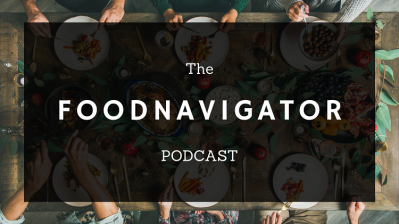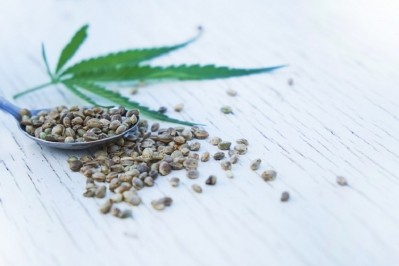UK cannabinoid industry spots opportunity as EC considers reclassifying CBD a narcotic

The EC has paused over 50 Novel Food applications for non-synthetic CBD products as it decides whether to classify extracts from hemp flowers as narcotic or psychotropic.
An EC spokesperson told FoodNavigator: “We have doubts about CBD… for the moment the preliminary analysis says that it could not be qualified as food but it's not a final decision.”
Another spokesperson told us: “The Commission’s preliminary view is that CBD extracted from the flowering and fruiting tops of the hemp plant (Cannabis sativa L.) should be considered as a narcotic falling under the United Nations Single Convention on Narcotic Drugs, 1961.”
The EC added that if CBD is classified a narcotic it cannot legally be considered a food, and therefore cannot go through the EU Novel Food approval process. As such, hundreds of CBD products would be unable to legally retail on the European market.
The Commission has told the concerned applicants of its preliminary views and invited them to provide comments by the beginning of September. The Commission will then take a decision on the validity of the concerned applications.
The EC said the move aims to clarify the status of CBD products to ensure a uniform application of EU law throughout all EU Member States.
At present, although CBD manufacturers in the EU require pre-market authorisation, it is not legally binding and individual countries are free to decide whether or not to remove unauthorised products from shelves. This has led to stringent enforcement of the rules in some countries, such as Spain and Austria, but not in others, such as Germany or the UK.
CBD will not be classified as a narcotic in the UK, says FSA
In the UK, the Food Standards Agency responded to the regulatory uncertainty by announcing earlier this year that all CBD manufacturers must have a validated Novel Foods application by 31 March 2021. Novel Foods applications are initially presented to the EC. Once given the green light, applications are then approved by the relevant regulatory body of the individual country.
The FSA has given UK CBD players assurances that the FSA will be formally accepting Novel Foods applications from January 2021 (when the transition period after Brexit comes to an end) although until that time, the EC remains the route for formal submissions. In addition, the FSA’s view is that, in line with national government policy, CBD extracts themselves are not considered narcotics (although THC, the psychoactive component of the hemp plant, is).
These assurances were welcomed by the UK’s Association for the Cannabinoid Industry, which represents 20 CBD raw material suppliers and manufacturers, themselves representing hundreds of smaller brands, all producing CBD products intended for food or beverages.
Dr Parveen Bhatarah, Regulatory and Compliance Unit Lead at the ACI, said: “We welcome this clarification from the FSA regarding their position that CBD will not be classified as a narcotic. This reassurance ensures that the industry focuses on the important task of gathering the necessary scientific data to demonstrate the safety of CBD.”
The ACI is currently supporting its members as they prepare and submit their CBD safety dossiers. These efforts will also be supported by the ACI’s CBD safety consortium.
Despite the stance of the EC potentially dramatically reducing the size of the potential market for CBD products from UK manufacturers, the ACI is optimistic that the move may ultimately assist its goal of a safe and legally compliant CBD industry in the UK and help push CBD further into the FMCG mainstream.
Steve Moore, ACI Founder and Senior Counsel, said: “It is very disappointing that the Novel Foods process has stalled, but heartening to know that the FSA is both engaging with applicants, committed to reviewing dossiers and not deviating from supporting the regulation of CBD via the novel foods route. It also positions the UK to be a global leader in the research and development of cannabinoids.”
Dr Bhatarah added that it would be a mistake for the EC to classify non-synthetic CBD as a narcotic.
“Plant derived CBD offers [an] alternative to synthetic CBD and consumer[s] should be allowed to have this option. Synthetic CBD is never derived from the plant, therefore, any product relying on synthetic CBD will not contain the health-boosting other plant-based molecules found in the plant. The entourage effect which is understood to enhance the effect of CBD cannot take place. This is why it is so important to know where the CBD comes from and how it is produced. That is why the Novel Foods application dossier should show the scientific evidence-based data, along with all those controls to show batch to batch consistency including the generation of toxicological information on the plant derived CBD.
“[The] EC’s risk assessment team should consider all applications synthetic or plant derived CBD Novel Foods applications as long as it provides the scientific data to prove that consumer safety is not impacted and there is consistency in the manufacturing process to deliver consistent batch quality each time as per pre-determined specifications.”


























